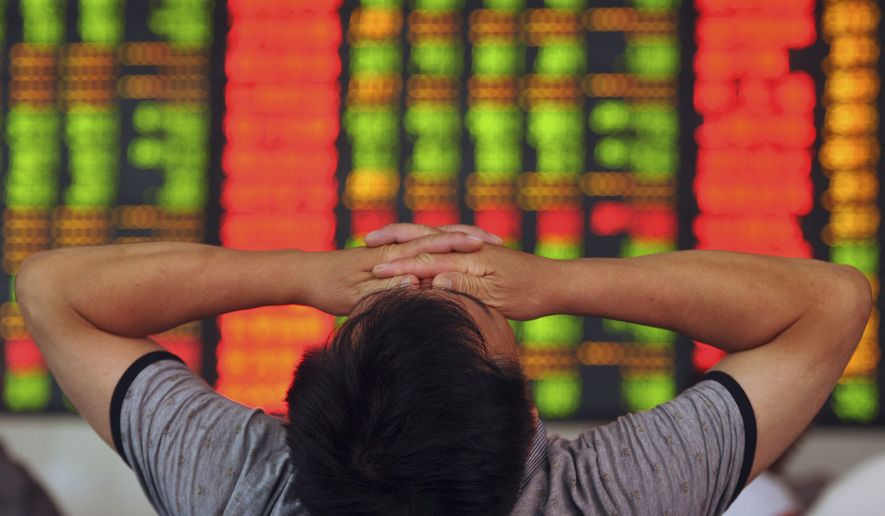OPINION:
China is hurtling toward regime crisis. The Shanghai stock market roller coaster, the nervous reaction of other world markets and the frightening headlines across the world are the least of Beijing’s worries. All the bad news is, however, symptomatic of deeper concerns.
Despite the apparent similarities to the stock exchanges of the West, the Shanghai market is profoundly different. It is not a primary collector of capital for investment. Capital and savings distribution in the Chinese system is largely done through three government banks, a top-down process Beijing is eager to transform to market-oriented distribution. The private sector accounts for a disproportionate share of Chinese prosperity, but it is pitted against huge, inefficient but politically connected government monopolies.
The Communist leaders in recent weeks encouraged investors to move their money into the stock market, moving away from central planning, which commits half of government funds to investment and toward more consumption. Beijing was once so infatuated with the Soviet model that it built enormous ghost cities without residents. Given the notorious Chinese addiction to gambling, it was inevitable that stock market speculation would soar until large and adroit speculators pulled the rug (or plug).
Confronted by a propaganda disaster, the Communist leaders began in early summer throwing money into the Shanghai market; the central bank started buying up shares. The market nevertheless continued to swoon, and in the latest round the powers that be have apparently given up, leaving investors big and small to take the hit. This is what they should have done in the first place, instead of demonstrating a growing inability to direct a planned economy without a plan.
Even more important to the party’s power monopoly, the decline in overall growth continues. Having given up Marxist-Leninism-Maoism in all but name, rapid economic growth has become all-important. The government claims a 7.6 percent growth rate, well behind the official claim of an average annual 10 percent growth over two decades. This was a figure that nobody believed, Many analysts say the number is closer to 5 percent. The conventional wisdom held that 8 percent annual growth in all economic activity was needed to preserve stability. Even more worrying has been the speed of the decline.
Numbers are not the only problem. Unlike his immediate two predecessors, Xi Jinping holds three crucial positions, secretary of the party, head of the government and chief of state. He has abandoned all pretense of collegiality. His reach for total power includes a spirited anti-corruption campaign reaching into the highest echelons of the party. Anti-corruption drives, which sound good, often cover the elimination of party rivals.
Mr. Xi has gone after several politburo members at the top of the Communist heap, including the head of the secret police and intelligence, Zhou Yongkang. Mr. Zhou was accused of everything from womanizing with the niece of a former president, whom he married after his second wife died in a mysterious automobile accident, to a scandal about his family’s hoard of $14.5 billion taken in bribery and embezzlement.
Mr. Zhou was sentenced to life imprisonment in a secret trial, but with so many of his friends in high places in the party, that is not necessarily the end of the matter. Mr. Xi, like his predecessor, has appointed large number of senior generals, most with no military experience, but are keen students of loyalty. There are stories from Beijing that he has put his predecessor, who has a strong following in the party, under house arrest.




Please read our comment policy before commenting.